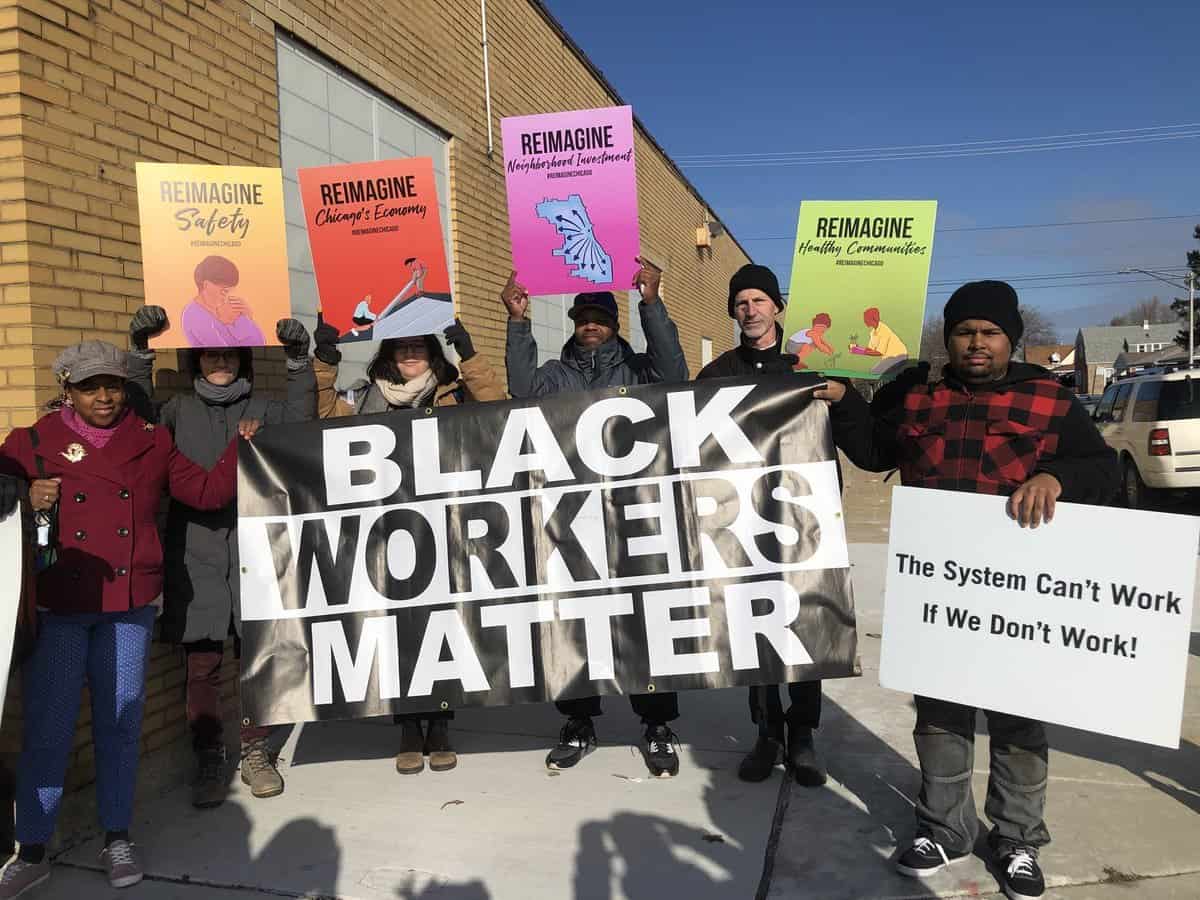
Lewit Gemeda is a student at Harvard Law School.
In today’s News and Commentary, a new study shows that the racial wealth gap, while still significant, is shrinking, and new investigative reporting by the Washington Post looks at how leaders of the unionization efforts at Starbucks are pushed out of their jobs.
A new study shows that the racial wealth gap has narrowed recently so that the median Black worker makes 21% less than the median white worker. While still significant, this narrowing is notable progress that may be attributable to three main factors: 1) a strong economy, 2) the fight for a living wage, and 3) growing diversity in corporate spaces. First, a today’s low unemployment rate and tight labor market may help disadvantaged workers the most because “[w]hen employers can’t be quite as choosy — when employers have to look beyond their network — that can provide more opportunities for historically marginalized groups.” This rise in opportunity for low wage and/or disadvantaged workers has helped narrow the racial wage gap. Second, the fight for a living wage has increased the minimum wage in states and cities across the country. An increase in the minimum wage shrinks the racial wage gap since Black workers account for a disproportionate about of low-wage workers. Lastly, the push for more diversity in corporate spaces over the last few years has also made an impact on the racial wage gap. Last year, the percentage of Black board members at Fortune 500 companies was at 12% (up from 9% in 2020). However, corporate boards make up a small fraction of the job market and the rise in diversity here plays a modest role in the narrowing of the racial wage gap when compared to the first two factors.
Next, according to the Washington Post, only 13 out of the 49 Starbucks baristas across Buffalo, New York who were part of the initial efforts to unionize are still working for the company. One of these baristas is Lexi Rizzo, a shift supervisor who signed the initial letter that was sent to Starbuck’s CEO in August 2021 that let him know that the baristas were seeking to form a union. The Post’s reporting dives into the retaliation Rizzo has faced following her advocacy. The union drive at Starbucks was significant for a number of reasons, largely because it inspired similar union drives in retailers like Apple, REI, Chipotle, and Trader Joe’s. Moreover, today only 6% of private-sector employees are part of a union so these unionization efforts in low-wage service jobs represent a new and expanding front for the labor movement. These efforts have been met with fierce resistance from the companies, and Starbucks has been found to have retaliated against union supporters by increasing surveillance, firing them, and promising better pay and benefits if workers reject an organizing campaign.






Daily News & Commentary
Start your day with our roundup of the latest labor developments. See all
July 4
The DOL scraps a Biden-era proposed rule to end subminimum wages for disabled workers; millions will lose access to Medicaid and SNAP due to new proof of work requirements; and states step up in the noncompete policy space.
July 3
California compromises with unions on housing; 11th Circuit rules against transgender teacher; Harvard removes hundreds from grad student union.
July 2
Block, Nanda, and Nayak argue that the NLRA is under attack, harming democracy; the EEOC files a motion to dismiss a lawsuit brought by former EEOC Commissioner Jocelyn Samuels; and SEIU Local 1000 strikes an agreement with the State of California to delay the state's return-to-office executive order for state workers.
July 1
In today’s news and commentary, the Department of Labor proposes to roll back minimum wage and overtime protections for home care workers, a federal judge dismissed a lawsuit by public defenders over a union’s Gaza statements, and Philadelphia’s largest municipal union is on strike for first time in nearly 40 years. On Monday, the U.S. […]
June 30
Antidiscrimination scholars question McDonnell Douglas, George Washington University Hospital bargained in bad faith, and NY regulators defend LPA dispensary law.
June 29
In today’s news and commentary, Trump v. CASA restricts nationwide injunctions, a preliminary injunction continues to stop DOL from shutting down Job Corps, and the minimum wage is set to rise in multiple cities and states. On Friday, the Supreme Court held in Trump v. CASA that universal injunctions “likely exceed the equitable authority that […]